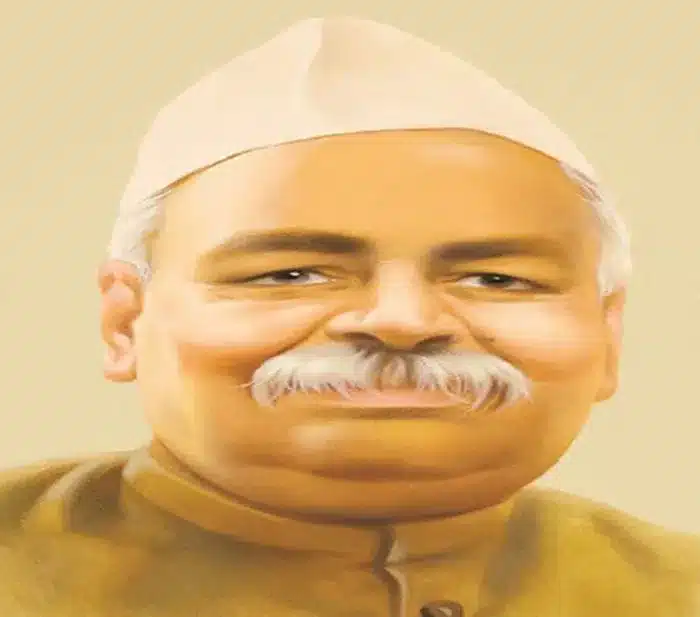Govind Ballabh Pant, an Indian freedom fighter

Govind Ballabh Pant (10 September 1887 – 7 March 1961) was an Indian freedom fighter. Who served as the first chief minister of Uttar Pradesh.
Early Life
Govind Ballabh Pant was born on 10 September 1887, in Uttarakhand, India. He was raised by his maternal grandfather, Badri Dutt Joshi, who had a big impact on his personality and political views.
When he was 18, he got involved with the Indian National Congress as a volunteer, looking up to Gopalkrishna Gokhale and Madan Mohan Malaviya as his idols.
He studied law in 1907, and after getting his degree, he started practicing law in Almora. Then he moved to Kashipur. During his time in Kashipur, he started an organization called Prem Sabha.
National Movement
In December 1921, he joined the Congress and soon joined the non-cooperation movement. In 1930, he was imprisoned for several weeks for organizing a Salt March that was based on Mahatma Gandhi’s earlier campaign. After attending a session of the then-banned provincial Congress in 1933, he was again arrested and jailed for seven months. Pant joined the newly formed Legislative Council after the ban was lifted in 1935. Pant was elected to the Central Legislative Assembly after the Congress ended its boycott of the legislature. The leaders of the Congress party admired him, so he became deputy leader of the Congress party in the Assembly.
In 1940, he was jailed for helping organize the Satyagraha movement. When he got arrested again in 1942, this time for signing the Quit India resolution, he spent three years at Ahmednagar Fort with other members of the Congress working committee until March 1945, when Jawaharlal Nehru successfully pleaded for Pant’s release, citing his failing health.
After Independence
Pant became Uttar Pradesh Chief Minister after independence. In his work, he tried to uplift the farmers and get rid of untouchability.
After the death of Sardar Vallabhbhai Patel, Pant became the home minister in the Union Government. He pushed to make Hindi the national language while he was Home Minister.
He abolished the zamindari system when he was in Government. In addition, he also pleaded with the government to lower agricultural taxes.
His contribution to the country included promoting cottage industries and fighting the coolie-beggar law, which forced porters to carry heavy luggage for British officials without money. Pant was always against separating minority voters, saying that would further divide communities.
Award
In 1961, he received the Bharat Ratna, India’s highest civilian award.
Death
He died on 7 March 1961, in New Delhi, India.
Observer Voice is the one stop site for National, International news, Sports, Editor’s Choice, Art/culture contents, Quotes and much more. We also cover historical contents. Historical contents includes World History, Indian History, and what happened today. The website also covers Entertainment across the India and World.
Follow Us on Twitter, Instagram, Facebook, & LinkedIn

